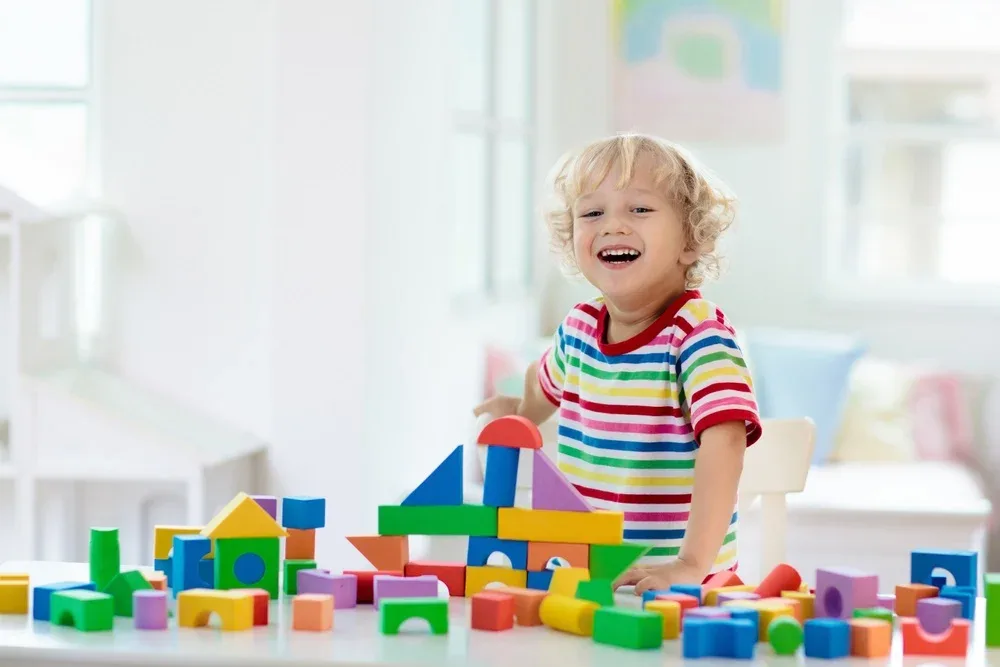
Starting daycare is a significant milestone for both children and parents. This transition can be filled with excitement, anxiety, and many questions. Understanding what to expect can help ease this transition and ensure a positive experience for everyone involved. In this guide, we’ll explore what happens when you start daycare, how to prepare, and tips for making the process as smooth as possible.
Contents
Understanding the Daycare Experience
Daycare is more than just a place where children are supervised while their parents are at work. It is a structured environment where children can learn, play, and develop essential social skills. Daycare services can vary, but they generally include:
Home-Based Daycare
Smaller settings often operated by individuals in their homes, providing a more intimate and flexible environment.
Center-Based Daycare
These are larger facilities with multiple staff members and a structured curriculum, offering a variety of activities and social interactions.
Each type of daycare has its advantages, and choosing the right one depends on your child’s needs and your family’s preferences.
The First Day at Daycare
The first day at daycare is a big step. It is normal for parents and children to feel a range of emotions, from excitement to apprehension. On the first day, you can expect:
Orientation: Many daycares offer a brief orientation to familiarize parents and children with the environment and routine.
Introduction to Staff: Meeting the caregivers looking after your child.
Exploration Time: Allowing your child to explore new surroundings and interact with other children.
Children might display various behaviors, from enthusiasm to clinginess. It is important to stay calm and supportive and reassuring your child that they will be safe and have fun.
Preparing Your Child for Daycare
Preparation can make the transition to daycare smoother. Here are some steps to take:
Visit the Daycare: Schedule a visit before the first day to familiarize your child with the environment and staff.
Meet the Staff: Introduce your child to their caregivers to build trust and comfort.
Discuss Daycare: Talk to your child about what to expect, emphasizing the fun activities and new friends they will make.
These steps can help reduce anxiety and make the first day less daunting.
What to Pack for Daycare
Packing the right items can help ensure your child is comfortable and prepared. Essential items include:
Clothing: Extra clothes, including socks and underwear, in case of accidents.
Comfort Items: A favorite blanket or stuffed animal for nap time.
Snacks and Meals: If the daycare does not provide food, pack nutritious meals and snacks.
Diapers and Wipes: If your child is still in diapers, pack enough for the day.
Medications: Any necessary medications with clear instructions.
Labeling all items with your child’s name can help prevent loss and confusion. Learn more:
What To Pack For Daycare: The 7 Must-Have Essentials
Daily Routine and Activities
A typical daycare day includes various activities designed to support child development. These activities often include:
Structured Play: Games and activities that promote physical, cognitive, and social skills.
Learning Time: Age-appropriate educational activities, such as storytelling, arts and crafts, and basic math.
Nap Time: A designated rest period to ensure children get enough sleep.
Outdoor Play: Time spent outside to promote physical activity and exploration.
These routines help children develop a sense of security and predictability.
Socialization and Interaction
One of the key benefits of daycare is the opportunity for children to socialize. Daycare fosters:
Social Skills: Learning to share, take turns, and communicate effectively with peers.
Friendships: Building early friendships that can enhance emotional development.
Conflict Resolution: Developing skills to resolve conflicts and work cooperatively with others.
These experiences are crucial for healthy social development.
Communication with Daycare Providers
Maintaining open communication with daycare staff is essential. Here are some best practices:
Regular Updates: Ask for daily or weekly updates on your child’s progress and activities.
Feedback: Share any concerns or feedback with the staff to ensure your child’s needs are met.
Stay Involved: Participate in daycare events and activities when possible to stay engaged in your child’s experience.
Effective communication helps build a strong partnership between parents and caregivers.
Benefits of Daycare
Daycare offers numerous benefits for both children and parents:
Cognitive Development: Exposure to educational activities stimulating learning and creativity.
Emotional Growth: Learning to manage emotions and develop empathy.
Social Skills: Building relationships and learning social norms.
Routine and Structure: Providing a consistent daily schedule that helps children feel secure.
Support for Parents: Allowing parents to work or pursue other activities with the peace of mind that their child is in a safe environment.
Common Concerns and Solutions
Starting daycare can come with concerns, but many of these can be addressed with the right approach:
Separation Anxiety: Gradually acclimate your child by spending short periods at daycare before transitioning to full days.
Illness: Understand the daycare’s illness policy and keep your child home when sick to prevent the spread of illness.
Behavioral Changes: Be patient and communicate with the staff to address behavioral issues.
Addressing these concerns proactively can lead to a more positive experience.
Tips for a Smooth Transition
Here are some practical tips to help make the transition to daycare smoother:
Consistent Routine: Establish a consistent daily routine that aligns with the daycare’s schedule.
Positive Attitude: Maintain a positive attitude about daycare to help your child feel excited and secure.
Stay Involved: Stay engaged with your child’s daycare experience through regular communication and activity participation. Learn more:
Tips for a Smooth transitioning to daycare
FAQs
How can I help my child cope with separation anxiety?
Separation anxiety is common, especially in the early days of daycare. You can help your child by gradually increasing their time at daycare, providing comfort items, and maintaining a consistent goodbye routine.
What should I do if my child gets sick at daycare?
Familiarize yourself with the daycare’s illness policy. Keep your child home when they are sick and notify the daycare. This helps prevent the spread of illness and allows your child to recover fully.
How do I choose the right daycare for my child?
Research different daycare options, visit the facilities, and meet the staff. Look for a daycare that aligns with your child’s needs and your family’s values. Reviews and recommendations from other parents can also be helpful.
Conclusion
Starting daycare is a significant step, but with the right preparation and mindset, it can be a positive experience for both children and parents. Remember to communicate openly with the daycare staff, stay involved in your child’s activities, and provide reassurance and support as they adjust to their new environment.
If you’re ready to find the perfect daycare for your child, consider Deecyda Daycare. Our experienced staff and nurturing environment are designed to make this transition as smooth and enjoyable as possible. Contact us today to learn more and schedule a visit.
Reference: Settling in at child care

